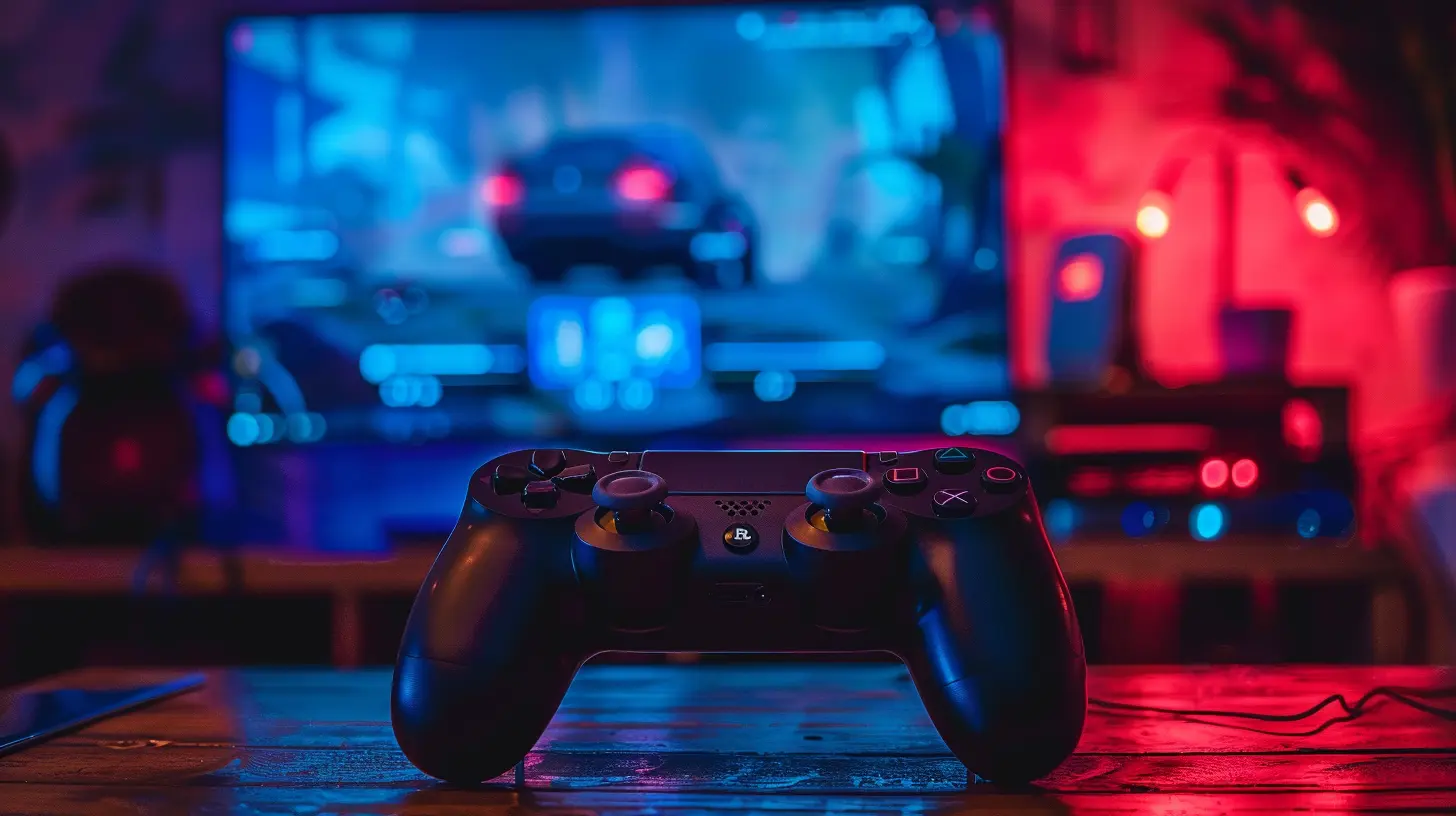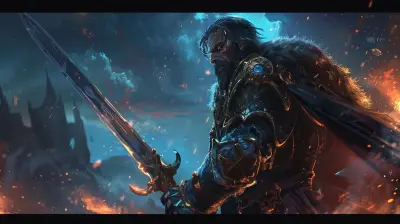The Role of Ethical Design in Free-to-Play Games
10 July 2025
Let’s be real—with the rise of mobile gaming and freemium models, we’re surrounded by games that don’t cost a dime to install. But while they might be "free-to-play" on the surface, we’ve all felt that nudge—the gated content, the skin you just have to have, or that timer that makes you wait unless you pay up. So… is free really free?
That’s where ethical design swoops in, like a superhero wearing a UX cape.
In this piece, we’re going to unpack what ethical design means for free-to-play (F2P) games. We’ll talk about its importance, the fine line between monetization and manipulation, and how game studios can respect players while still turning a profit. Buckle up; this one’s close to the heart for any true gamer or game developer.

What Is Ethical Design, Anyway?
Before we dive deep, let’s break this down.Ethical design in gaming revolves around creating experiences that prioritize the player’s well-being over profits. It's about putting people first—making sure a game is fun, engaging, and fair without tricking the player into spending money.
Think of it as the difference between nudging someone toward a choice… and shoving them off a cliff.
Ethical design asks questions like:
- Is the game respecting the player’s time?
- Are microtransactions presented transparently?
- Are we using psychology to hook players or to help them enjoy the experience more?
Let’s face it: F2P games are here to stay. But how they’re designed makes all the difference between something beloved and something exploitative.

Why Ethical Design Matters in Free-to-Play Games
So, why should we care about ethical design in F2P games? Because it directly impacts how we feel about the games we play and the companies behind them.1. Player Trust Is Everything
No one likes to feel tricked. When a game lures you in with a free tag but then makes real progress impossible without constant payments, that trust is shattered.Gamers talk. Once trust is breached, social media and forums light up like wildfire. And rebuilding that trust? Way harder than building it in the first place.
2. It Improves Long-Term Engagement
Games designed ethically tend to have longevity. When players feel respected, they stick around. They recommend the game to friends. They might even spend money—not because they’re pushed into it, but because they actually want to support the creators.That’s the kind of loyalty money can’t buy.
3. It Helps Avoid Legal Trouble
Laws around online purchases and digital content marketing are tightening. Some countries are cracking down on manipulative microtransactions and loot boxes. Studios that embrace ethical design early are ahead of the curve and less likely to land in legal hot water later.
The Dark Side: Where F2P Games Go Wrong
We’ve all seen it—F2P games that feel more like cash grabs than entertainment. And sadly, it’s often by design.Here are a few common unethical tactics:
1. Pay-to-Win Mechanics
Let’s say you’re grinding through a strategy game, putting in hours… only to be steamrolled in multiplayer by someone who shelled out $20 for overpowered gear. That’s not just frustrating—it’s demoralizing.Pay-to-win ruins the spirit of competition and fairness. It turns games into wallets-fight-wallets, not skill vs skill.
2. Manipulative UX
Ever notice how the “buy now” button is bright and exciting, while the “no thanks” button is dull or hard to find?That’s not an accident.
Some games even include fake timers, sudden urgency, or use loss aversion (“Buy this or miss out forever!”) to manipulate players into spending. These tricks work, especially on younger players—or folks who might be more vulnerable.
3. Loot Boxes and Random Rewards
Loot boxes are gambling, plain and simple. You pay real money for a chance to win a virtual item. Sure, opening them can feel exciting—but that’s exactly why they’re dangerous. The thrill of the unknown is addictive.And when you think about how many kids play these games… it gets uncomfortable fast.

Ethical Design Principles: What It Should Look Like
Okay, enough of the doom and gloom. Let’s talk about how F2P games can be designed ethically and still thrive.1. Transparency First
One of the golden rules? Be upfront. Clearly show what players are getting when they make a purchase. If it’s a loot box, show the odds. If it’s a skin or level, show exactly what it includes.Honesty builds trust. It makes players feel respected, not tricked.
2. Fair Monetization
The best F2P games let everyone enjoy the core experience—without forcing payments.Monetization should enhance the game, not gatekeep it. Cosmetic items, bonus content, and optional expansions are great examples. If the game is fun without spending, and players feel good when they choose to buy something, that’s the sweet spot.
3. Respect for Player Time
Timers, energy limits, and cooldowns can be okay—if they’re not overdone. But if your game becomes a waiting simulator unless someone pays? That’s a problem.Design should help players enjoy the game in small or long sessions, not frustrate them into opening their wallets.
4. Age-Appropriate Design
If your game is for kids or teens, design with that in mind. Avoid manipulative monetization tactics or gambling-like mechanics. Parents and guardians are watching—and regulators are starting to as well.5. Encourage Healthy Habits
What if your game actually reminded players to take a break after a long session? Or offered settings for limiting spending or screen time?That’s ethical design in action—and it tells players you care about more than just profits.
Examples of Ethical Free-to-Play Games
Let’s give a shout-out to some titles that actually get it right.1. Fortnite
Yep. Love it or hate it, Fortnite nails ethical monetization. The game is 100% free to play, and all purchases are cosmetic. No pay-to-win, no hidden mechanics, just skins, emotes, and battle passes for those who want them.You can be just as successful without spending a dime—and millions of players are.
2. Warframe
Warframe offers a deep, content-rich experience completely free. You can grind to unlock everything in the game. Sure, you can pay for convenience, but you’re never forced to. Everything feels fair.As a bonus? It’s got one of the most respectful dev teams out there, with open communication and constant updates.
3. Genshin Impact (with Caveats)
Genshin Impact walks a tricky line. It’s got gacha mechanics, sure—but it also gives free players a massive amount of content. You don’t need to spend money to enjoy the game, and it’s possible to progress far without paying.Still, there's room for improvement in how they present gacha odds and spending incentives.
Developers: Balancing Business and Ethics
Let’s not forget—game studios need to make money. Servers aren’t free, and teams pour years of their lives into development.Ethical doesn’t mean anti-profit. It just means profit earned through quality and fairness, not manipulation.
Here’s how devs can walk that line:
- Build monetization into the design early. Tacking it on later often leads to frustrations.
- Test with diverse players. Get feedback not just on gameplay, but on how monetization feels.
- Talk to your community. Transparency means listening as much as talking.
Are Players Part of the Problem?
Here’s a spicy question: are we, the players, partly to blame?Free-to-play games succeed or fail based on how we engage with them. If we keep spending recklessly or endorsing manipulative games, we send a message that it’s okay.
But when we support ethical games—by playing them, sharing them, and yes, spending on them—we show the industry what works.
We vote with our time, clicks, and cash. Let’s vote wisely.
The Future of Ethical Design in F2P
There’s hope on the horizon.More indie devs are leading by example. The public is getting wiser and louder about unethical practices. Some companies are even hiring ethics officers to oversee monetization strategies.
And as tech grows, so does the pressure to design responsibly—especially with kids and younger audiences spending more time in digital worlds.
The future? It’s going to be shaped by the choices we all make—designers and players alike.
Final Thoughts
At its best, the free-to-play model is magical. It breaks down paywalls and makes games more accessible than ever. But at its worst, it becomes a maze of manipulative traps.That’s why ethical design matters. Because games should be fun, fair, and respectful of our time and minds—not just little machines chasing our credit card info.
So if you’re a developer, ask hard questions. Build with integrity. And if you’re a player? Keep pushing for better. Support studios doing it right. We’ve already seen the power of great games—and with ethical design, we can make the F2P world even better.
Let’s raise the bar.
all images in this post were generated using AI tools
Category:
Video Game DesignAuthor:

Francesca West
Discussion
rate this article
2 comments
Colt Adkins
Great insights on ethical gaming!
October 28, 2025 at 4:11 AM

Francesca West
Thank you! I'm glad you found the insights valuable!
Indigo McNab
Great read! Ethical design in free-to-play games is crucial. As players, we all appreciate balance over manipulation—let's celebrate more fair gaming experiences!
July 15, 2025 at 4:37 PM

Francesca West
Thank you for your thoughtful comment! I completely agree—ethical design fosters a healthier gaming environment for everyone.


